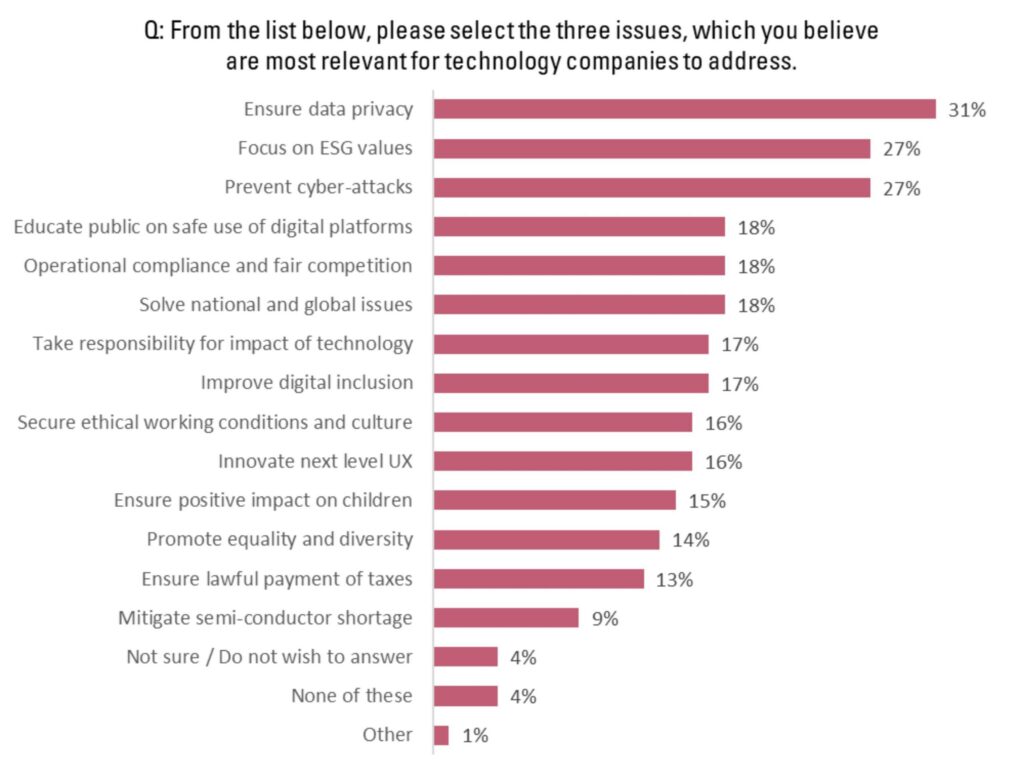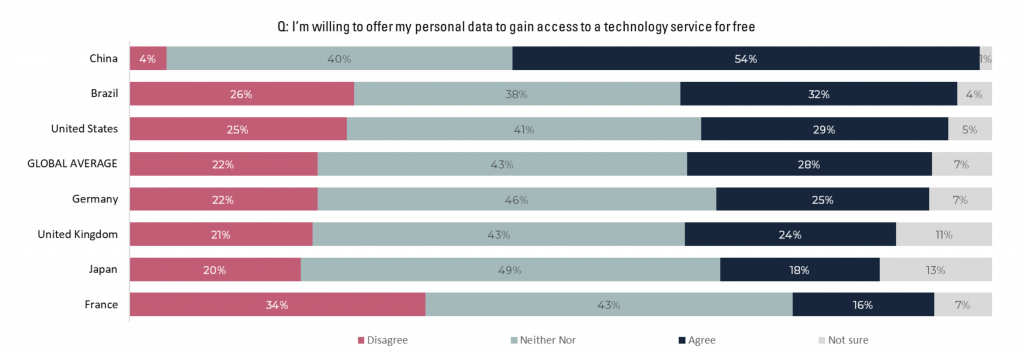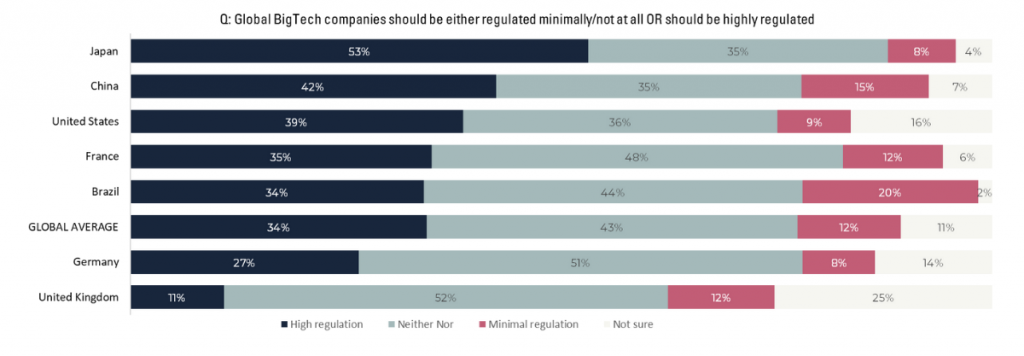

Our recent report on Big Tech suggests that the global sector enjoys an average level of trust among stakeholders – mainly due to being frontrunners in innovation.
However, concerns about ethical practices, especially related to data privacy, are impacting public trust in most large technology companies. Recent events have led to added scrutiny and political action and may mark a turning point for the sector.
Big Tech companies are the largest companies by global market capitalization in the technology sector.
The list of companies considered Big Tech can vary depending on who you ask, but the most frequent definition includes the top 5 most valuable companies:
Big Tech is all about big data, and big data has become big business.
In 2021, Big Tech earnings amounted to USD 1.4 trillion, which is roughly the same as Brazil’s entire GDP. For each of the Big-5 companies, consumer data contributed substantially to their success.
The sector is profiting off Surveillance Capitalism meaning “the unilateral claiming of private human experience as free raw material for translation into behavioral data”. Our online behavior is being watched, recorded, and analyzed by these Tech giants, so they can target advertisements and products toward us.
Yet, until recently most of us have lived in ignorant bliss, or perhaps misguided acceptance, of what has become Big Tech’s main source of revenue – our personal data.
Our recent report shows that while perceptions are high of the sector’s ability to innovate, people are far more reluctant when it comes to how they perceive Big Tech on integrity and relevance. The underlying reason for this discrepancy in the perception profile is likely the many ethical issues that Big Tech has been and is currently facing.

Just in the past decade, Big Tech companies have been involved in global data privacy scandals (e.g., NSA’s PRISM and Cambridge Analytica), large-scale data breaches (e.g. the 2019 Facebook data breach), and unethical practices like tax evasion, and providing platforms that enable election interference and give voice to radical political groups.
More recently, the sector has been spotlighted by new antitrust regulation and political accusations of misinformation against the public.
Caliber data shows that people most expect all technology companies to focus on addressing issues regarding safety, security, and responsibility.

Not surprisingly, Caliber data shows that most people expect the sector to address issues concerning data privacy, data protection, and overall corporate responsibility.
However, these are not the only issues for Big Tech and the technology sector. As seen above, there are broad expectations for the sector to play an integral part in solving the “hygiene” issues related to their role as stewards of our data, as well as for them to take on responsibility for their role as change agents for our digital future.
The ethical issues for Big Tech have festered public perceptions of the sector. The Trust & Like Score (Caliber’s overall metric to assess corporate reputation) is down 2 points in 2022, but perhaps more alarming is the amount of people showing their lack of trust in the sector through their indicated behavior.

Globally, only 28% of people say that they are willing to share personal data to access free services online. And while percentages differ greatly across geographies (highest in Europe, lowest in China), the global average shows significant public skepticism towards surveillance capitalism.

In addition, people express a need to see the sector become more regulated than is the case today. Globally, 34% say the sector should be highly regulated, and most countries show more willingness to offer personal data for free services.

Together these two data points paint a picture of people either regulating their own behavior to protect their personal data, expecting more firm regulation to limit the power of Big Tech, or both.
Despite a currently average reputation for the sector, there seems to be a fundamental mistrust in Big Tech when it comes to protecting the people’s best interests.
The question is now whether the technology sector as a whole can continue to drive favorable public perception through innovation and product/service offerings or if increased public and political expectations of increased responsibility will be a more deciding factor for the sector’s reputation going forward.
Our 2022 Big Tech report is out. Download the study for more insights on the sector and see the reputation ranking of Big Tech and other companies in the technology sector.
© 2024 Group Caliber | All Rights Reserved | VAT: DK39314320